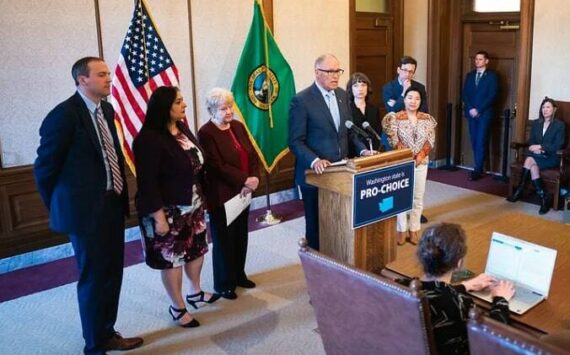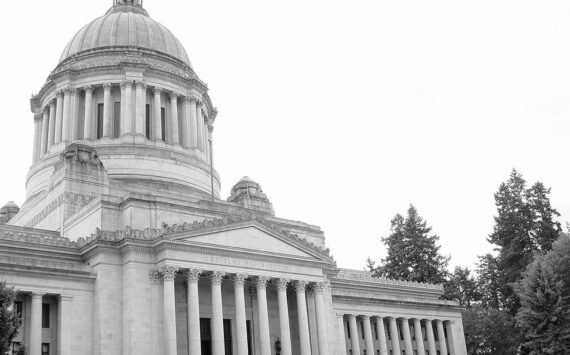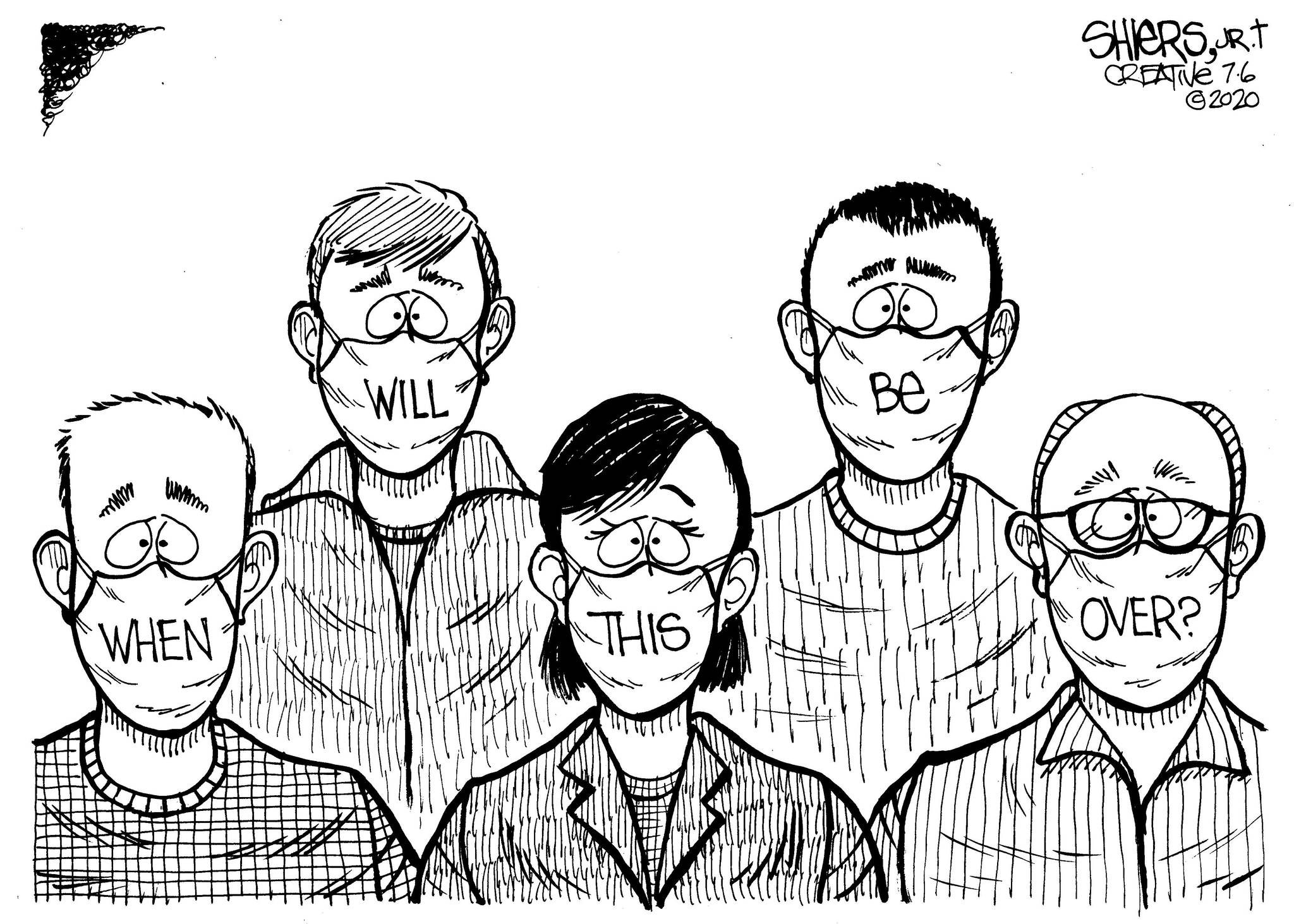Washington state lawmakers, judges, and executives such as Gov. Jay Inslee could be getting a pay raise. And in some cases, a pretty hefty one.
Earlier this month, the commission that sets salaries of the state’s elected officials and judges voted to increase salaries for Washington lawmakers by 8.8 percent next July and another 8.8 percent a year later. Judges would see their pay climb by 12.7 percent next year and 5.1 percent in 2020 under the proposed schedule adopted by the Washington Citizens’ Commission on Salaries for Elected Officials. For elected members of the executive branch, the proposed two-year increases ranged from 6.6 percent for Inslee to 13 percent for Lt. Gov. Cyrus Habib.
Commissioners will spend the next four months gathering public comment on all the recommended raises. Public hearings are planned Nov. 14 in Spokane, Dec. 12 in Vancouver, and Jan. 9 in Silverdale. A final hearing is set for Feb. 4 in Olympia, at which the commission could revise the schedule before taking final action.
The proposal and contact information for the panel can be found online at salaries.wa.gov.
Each proposed pay hike consists of two components: annual boosts in a base salary topped by a cost-of-living adjustment of 2.5 percent each year.
Setting the level of pay for elected members of the state’s executive, legislative, and judicial branches is a biennial process conducted by the 16-person panel. Its members are residents randomly selected from the state’s 10 congressional districts, plus others from business, organized labor, and higher education. Also represented are legal and human-resources professionals.
Comments from commissioners seemed to indicate they didn’t think pay had kept pace with the growing responsibilities of the elected positions. They surmised part of the reason is their predecessors didn’t pay more during tough economic times.
“When money is very tight here, we don’t give any raises,” said Commissioner Kozen Sampson. “So the only time we can really look at giving raises is when the state is a little bit more affluent. I think we’re [acting] in accordance with that and trying to balance things out.”
Voters established the commission in 1987 to prevent politicians from deciding their own pay. It is funded with state tax dollars, but operates independently of the three branches of state government. Commissioners are supposed to make their decisions on the duties of the job — not the man or woman doing it at the time, nor any of the perks associated with it. They can compare figures with what other states pay for similar posts. They don’t have to give any raises, but they cannot lower the salary of anyone in office. By law, elected officials cannot reject a pay hike.
When the commissioners met this month, they learned about the duties of each position, then discussed whether the level of pay should be adjusted.
They are proposing that lawmakers, who now earn $48,731, get a bump in pay to $53,024 on July 1, 2019 and to $57,425 the next July. Leaders of the four caucuses, who earn more because of their added responsibilities, would receive similar-sized increases. The recommendation passed 15-1.
Washington has a part-time Legislature. It is scheduled to be in session for 105 days in 2019 and 60 days in 2020, although in recent years there has been a rash of special sessions. Most lawmakers are engaged in legislative-related activities such as meeting with constituents throughout the year.
(For comparison, the annual salary for a member of Congress is $174,000, while a starting teacher in the Edmonds School District earns $62,688.)
Some commissioners said they wanted the pay to be enough so that residents in all walks of life will be interested in serving in the citizen legislature. Low salaries, some worried, would over time lead to a legislature populated by members of special-interest groups and corporations.
Commissioner Jon Bridge said he could remember a time, years ago, when several Boeing employees were elected and got time off with pay while serving in office. “They were good, honest people, but nevertheless, if their bosses made mention of and desired certain things, the tendency in those situations is to follow what your bosses want,” Bridge said.
After some commissioners pointed out lawmakers are supposed to represent those living and working in their districts, Chairwoman Melissa O’Neill Albert said, “I think the main issue is a very low salary opens the door to influence in ways that we may not like. We still are charged with [proposing] realistic salaries that attract the best and brightest.”
The largest proposed increases are for those in the judicial branch. This includes judges serving in district and superior courts, courts of appeal, and the Supreme Court. Commissioners are seeking to align their pay schedule more closely with the one for the federal judicial branch. For example, under the proposal, the salary of Chief Justice Mary Fairhurst of the state Supreme Court, now $193,162, would climb to $217,790 next year and $228,816 in 2020. (Chief Justice John Roberts of the U.S. Supreme Court now earns $267,000.) Associate justices on the state high court would earn $225,562 in 2020, compared to the $255,300 now paid to their counterparts on the federal high court.
Commissioners took separate votes on pay hikes for Inslee and the eight other statewide executives. Inslee, who now earns $177,107 a year, would make $183,072 next year and $189,186 in mid-2020, the final year of his second term. He has not said if he will seek a third term.
Habib, in his first term as lieutenant governor, is now paid a base salary of $103,937. He does receive extra pay when he assumes the role of acting governor when Inslee is out of state. Commissioners are suggesting his pay climb to $111,725 on July 1, 2019 and $117,875 the next year—a pay hike of 7.5 percent the first year and 5.5 percent the second.
Superintendent of Public Instruction Chris Reykdal, who has been assigned additional duties overseeing public schools by lawmakers, would see his salary rise by 7.1 percent to $146,575 next year and to $153,750 in 2020. The job now pays $136,910 a year—nearly $30,000 less than the average salary of school district superintendents in the state. It is roughly $175,000 less than that earned by the Mukilteo School District superintendent and $100,000 less than the salary for the Everett School District superintendent, according to materials Reykdal provided the commission.
Jerry Cornfield is a political columnist for Sound Publishing. Contact: 360-352-8623; jcornfield@herald net.com. Twitter: @dospueblos.








